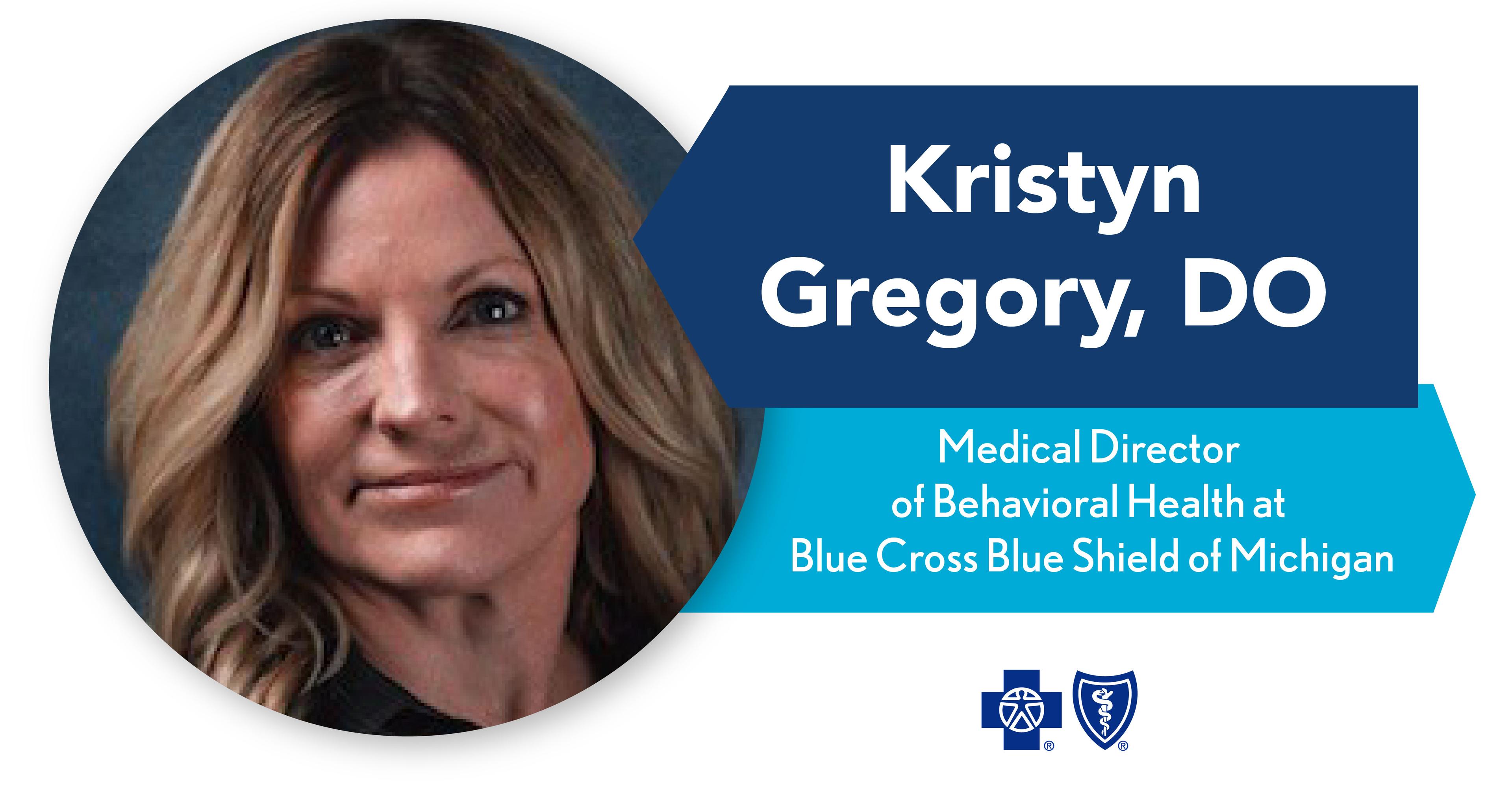Addressing Social Media Myths About High Cortisol in Women

Dr. Kristyn Gregory, D.O.
| 4 min read
Dr Kristyn Gregory, D.O., is a former medical director at Blue Cross Blue Shield of Michigan. Dr. Gregory is a native Michigander and a graduate of medical school at Midwestern University in Chicago. She completed her adult psychiatry residency at Henry Ford Detroit Michigan, and child and adolescent psychiatry fellowship at Wayne State University. She is a diplomate of the American Board of Psychiatry and Neurology.

Women on social media today are increasingly targeted by advertisements for unregulated supplements and other so-called therapies to help them regulate their hormones and stress. One of the more recent marketing trends tries to convince women that they need to balance their cortisol levels to feel less stressed and to sleep better. Behind each one of these claims is an individual trying to profit from the sale of a product or supplement.
Cortisol plays a significant role in our body’s everyday processes, including regulating our stress response. Yet having higher than normal levels of cortisol is extremely rare and is often linked to tumors or taking certain medications. In these cases, medical treatment will be necessary under the direction of a health care professional.
Understanding the true function of cortisol in the body is important when sorting through misinformation found on social media. For most individuals, practicing good stress management techniques is the best way to support their overall physical and mental health.

What is cortisol?
Cortisol is one of many hormones in the body. It can be known as the “stress hormone,” as it helps regulate the body’s response to stress. When the brain perceives a threat, the body responds by releasing hormones from the adrenal glands, including cortisol – which increases sugar in the bloodstream to help the brain function.
But its job is bigger than that: cortisol helps control how the body uses fats, proteins and carbohydrates, regulates blood sugar and blood pressure, manages the sleep-wake cycle and suppresses inflammation. Cortisol affects nearly every major organ system in the body. One of its biggest – and often overlooked – roles is how it helps the body go to sleep and wake up as a part of its circadian rhythm. At night, cortisol levels naturally drop as the body prepares for rest. In the morning, cortisol levels begin to rise, preparing the body to wake up.
The impact of chronic stress
Once a threat has passed, the body typically stops releasing hormones to allow the body to resume its regular systemic functions. However, if the body has to respond to constant stress, it will continuously releasehormones including cortisol. This can cause a waterfall effect of health problems, putting individuals at a higher risk for anxiety, depression, digestive problems, headaches, muscle tension, cardiovascular disease, problems with sleep, weight gain and problems with memory and focus.
Signs of unbalanced cortisol levels
High levels of cortisol in the body for an extended period of time is considered to be Cushing’s syndrome. This rare condition can be caused by taking large amounts of corticosteroid medications, tumors in the pituitary gland and tumors in the adrenal gland.
Low levels of cortisol in the body areconsidered to be adrenal insufficiency. There are two types: primary adrenal insufficiency occurs during an autoimmune reaction called Addison’s disease, a rare chronic condition. Secondary adrenal insufficiency occurs if the pituitary gland is underactive or has a tumor. Stopping a treatment of corticosteroid medication can also cause lower-than-normal levels of cortisol.
Healthy ways to manage stress
Individuals should bring any concerns about their cortisol levels, as well as any symptoms they may have observed, to a health care provider so they can evaluate the need for future testing, diagnosis or treatment.
For most individuals, finding healthy ways to manage stress is the best way to support their whole health and interrupt the fight-or-flight cycle the body can get stuck in under chronic stress. Here are some tips to follow:
- Eat a balanced diet: Incorporating a variety of fruits, vegetables, whole grains, legumes, nuts and lean proteins contributes to overall good health.
- Clear the head: Meditation, spiritual routines and deep breathing are great strategies in calming the mind and body. These practices can activate the body’s relaxation response, which aids in starting the day feeling alert and stress-free. Deep breathing has also been linked to positive thinking, increased awareness, enhanced creativity and better brain function.
- Get active: Whether it’s joining a recreational sports team, taking an exercise class or going for a walk, aim to get moving. Being sedentary for long periods of time has been linked to higher levels of anxiety and increases the risk of obesity, cancer, diabetes and heart disease.
- Rest: Most adults need an average of eight hours of restful sleep per night. To create a better sleep schedule, limit caffeine intake after lunch, avoid late-night screen time and create a sleep routine that ensures some much-needed shut eye.
- Set boundaries and manage time: Managing commitments, setting boundaries, avoiding procrastination and categorizing tasks effectively reduces stress.
- Find a hobby: A busy life doesn’t have to be all work and no play. Make time for a favorite hobby – either old or new – to disconnect from daily life demands and responsibilities. The break can help promote positive thinking and curb exhaustion.
- Talk with a professional. Mental health professionals can help individuals learn coping skills to manage stress and anxiety.
By finding routines that help mitigate stress, individuals will be in a better place to support their physical and mental health.
Kristyn Gregory, D.O., is medical director of behavioral health at Blue Cross Blue Shield of Michigan.





